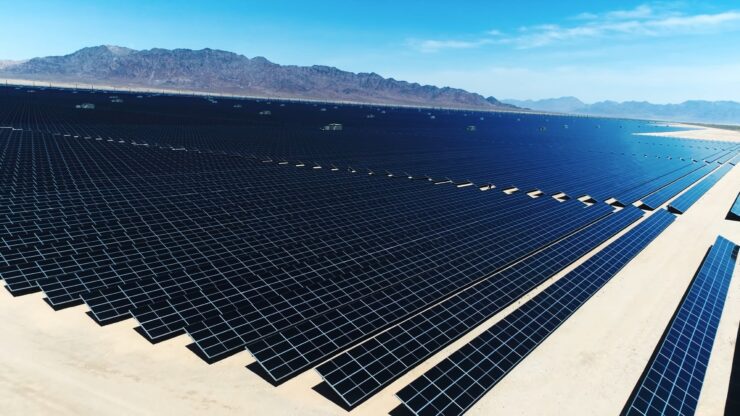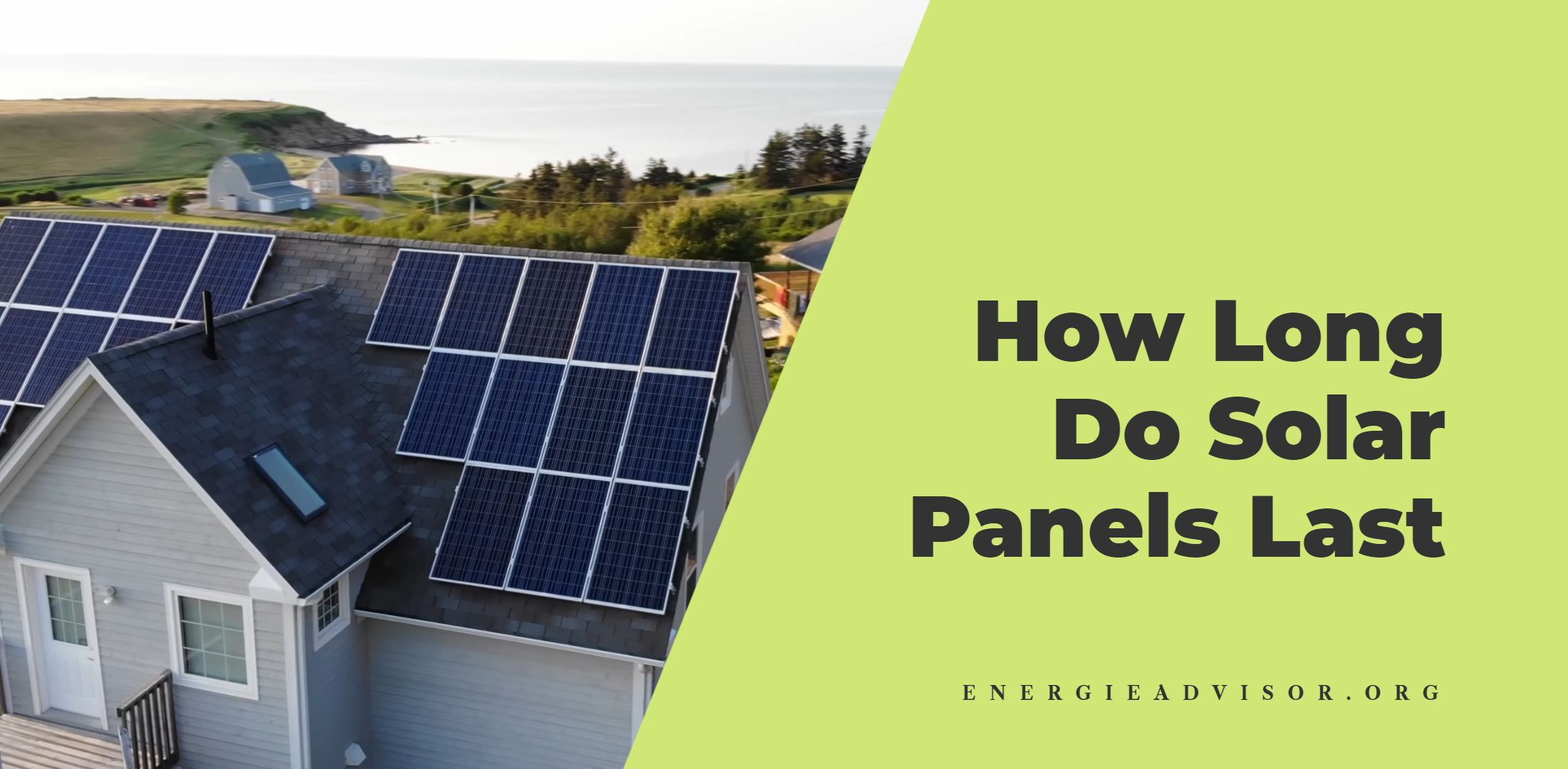Of course that you are worried about the durability of super pricey solar panel system you are planning to install on top of your roof. It’s very commendable you decided to go solar, but now, there are some ongoing issues we need to tap on in order to prove you did not make a mistake.
The lifespan of solar panels is undoubtedly one of those, given you are trying to calculate the period of time in which you will be able to pay off the investment for sure. Besides that, it’s important to predict when, in the future, you will be forced to invest in reparations or to purchase new items. So the question is, how long do solar panels last?
The average lifetime of solar panels is around 25-30 years, but that doesn’t mean they will be „dead“ and ready for trash when that time passes by.
The experts claim that after two to three decades, they will stop working with full capacity, but they will still be able to generate electricity, just not to that extent as before.
If panels are not damaged in a storm or some kind of accident, they will continue to work properly for many years to come.

STATISTICS AND SOLAR PANEL DEGRADATION RATE
Research conducted in 2012 by the National Renewable Energy Laboratory has shown that each year, solar panel output reduces by 0.8 percent, on average. The truth is, this degradation rate today is less than it used to be at the moment when these results were released since the technology got even better over the years.
Besides that, this factor depends on many things. It’s conditioned by the solar panel brand you chose, as well as the panel type you decided to suit you the most.
If you want to do the math, you need to determine the projected output of solar panels after some time, multiply the actual degradation rate with the number of years you are planning to use them (that’s usually the number of years solar panels are under warranty), and then subtract that number you get from 100 percent.
Now, you can understand that even after many years, they are going to work just fine, with most of their capacity.
WHY IS THIS HAPPENING?
The rate of degradation of a solar panel is conditioned by the type of panel and the natural forces we cannot influence or control. If we take crystalline panels, for example, they are more resistant than others and can withstand extreme cold and heat for more than two decades. On the other side, we have film panels which are much more sensitive and will start the process of degradation quite faster.
The truth is that those panels which are subjected to often and a strong wind blows, heavy snow loads, the impact of falling hail, and exhausting heat will for sure gradually lose solar panel efficiency and structural integrity. But panels installed in a place with a favorable climate will degrade at a much slower pace.
HOW CAN YOU PROLONG THEIR LIFE?
There isn’t much you can do really, besides providing the solar system with yearly service and regular check-ups by a professional.
Although fragile, solar panels are very durable per se since they don’t have any movable parts, and they can withstand heavy snow loads, falling hail, as well as high winds. Just make sure they are clean, without piles of dust on top, and let them do the job they are made for.
Some experts say that strong wind and adverse weather conditions are able to leave a mark on solar panels and that they are going to degrade much faster if they are exposed to it often. So, when choosing the location for panels, before installing the whole system, think about any possible way you can shelter them a bit from the wind.
STANDARD SOLAR PANEL WARRANTIES
Make sure you purchase solar panels with excellent warranties. This is a huge investment for every household, so be smart and protect yourself.
Renewed solar manufacturers are promising your panels will do the job during that protected period in continuity while producing at least 80 percent of the energy they should.
It means, for example, that a 300-watt solar panel will be capable of generating a minimum of 240 watts till the warranty ends.
Besides that production warranty, they also have a tendency to give 12 to 15 years of equipment warranties, which will cover any defects as well as environmental damages of certain parts.
WHAT HAPPENS AFTER 25 YEARS?
Having in mind that photovoltaic is a relatively new method for generating electric power by using solar cells, there isn’t much data on what really happens after that period of time predicted as solar panel’s lifespan.
The majority of solar panel systems that are currently in use are less than a decade old, so we will have to wait and see for ourselves.
But, a couple of things are certain and unquestionable – the first-ever modern solar panel is still working after 60 years; there are some registered examples where panels outperformed their original factory specifications; the technology is getting better and better as we speak and panels are more durable and productive than ever. So there is a great chance the results will be preferable in the future.
MAINTENANCE
In order to make sure you are doing everything necessary to prolong the life of your solar system, make sure your installer thoroughly examine panels each year. That way you can prevent some serious problems showing up and complicate your life.
But do not do it by yourself, because, first of all, you are not an expert, and you can even make things worse by trying to fix something you know nothing about, and second of all you can annul your panel warranty. Regular inspection will reveal any potential problems like exposed wires or loose racking.
The most important thing is that solar panels do not defect to the weather or some object that stand close to them and that they are securely mounted to the roof.
Since we gave you the estimated lifespan of panels, you should also know that standard central inverter, which is mostly used, won’t last more than 15 years, so you will need to replace it at some point during the lifetime of your solar panel system.
But the micro version of the inverter you can also use will get to the same number of years as an average solar panel.
DISPOSAL AND RECYCLING PROCESS
We already know solar panels are a clean source of energy and that they minimize greenhouse emissions. Also, with them, there is no wastage present. Once installed, the solar panel system will continue to work and provide you with electricity for a long time. They just need to be checked and cleaned once in a while.
They do, however, have some kind of expiration date. Solar panels will provide with less and less as time goes by, so it’s up to you to decide when it’s the right moment to replace them with the set of new ones that will generate energy with full capacity.
Solar panels can undergo a recycling process, which is another thing you must love about them. It is possible to disassemble each panel to its parts and implement the normal recycle cycle with each group, or, since this procedure is quite complicated, you can do the recycling with advanced recycling machinery.
The solar recycling market is at its beginnings, given the fact that there are no many solar panels ready to be wiped out. This is still a relatively new branch regarding power providing mechanisms, so most of the solar systems are very young, not even close to stepping out of the standard warranty period.
CONCLUSION
As it turns out, you really don’t have to worry. First of all, it’s certain that the decision to install solar panels and make them the primary source of energy will pay off quite soon, even though it does require a significant amount of money.
Pretty soon, you will find them to be one of the most sustainable and affordable sources of energy. And second of all – they won’t turn on you for a long time until you get really old we dare to say.
The climate is changing, there is no doubt about that. So we can no longer predict what the weather will be like the next winter or this fall, and that is troublesome.
But the fact that the solar system can go through decades while fighting against every storm and all those surprises coming from the sky should give you proof and warranty they will manage to stay on course and do the job correctly. They are fragile, there is no doubt about that, but they are also super durable if maintained correctly.

